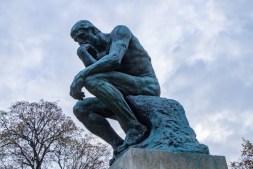Top 5 Iconic Fictional Leaders and Their Impact on Literature
Fictional leaders have shaped narratives in literature for centuries, reflecting societal values, struggles, and aspirations. From ancient epics to modern novels, these characters not only drive stories forward but also offer profound insights into leadership qualities and human nature. In this article, we explore five iconic fictional leaders and their lasting impact on literature.
Odysseus from Homer’s ‘The Odyssey’
Odysseus, the clever king of Ithaca, is often celebrated for his intelligence and resourcefulness. His journey home after the Trojan War is a testament to perseverance in the face of adversity. Through his character, Homer explores themes of loyalty, cunning leadership, and the trials one must endure to achieve their goals. Odysseus’s ability to navigate challenges has made him a timeless symbol of heroic leadership in literature.
Atticus Finch from Harper Lee’s ‘To Kill a Mockingbird’
Atticus Finch stands out as a moral beacon in American literature, championing justice and equality in racially charged circumstances. As a lawyer defending an innocent Black man accused of rape in the Deep South during the 1930s, Atticus embodies integrity and empathy. His unwavering commitment to doing what is right teaches readers about moral courage and the importance of standing up for one’s beliefs despite societal pressures.
Katniss Everdeen from Suzanne Collins’ ‘The Hunger Games’
Katniss Everdeen emerges as an unlikely leader within dystopian fiction through her bravery and self-sacrifice. Initially motivated by survival during the Hunger Games, she becomes a symbol of rebellion against oppression as she leads others towards freedom. Her evolution highlights how ordinary individuals can develop leadership qualities when faced with dire circumstances, inspiring readers to recognize their own potential for influence.
Aragorn from J.R.R. Tolkien’s ‘The Lord of the Rings’
Aragorn represents noble leadership grounded in humility and responsibility throughout Tolkien’s epic saga. As heir to the throne of Gondor who initially shies away from power due to personal doubts, he ultimately embraces his destiny by uniting various factions against evil forces. Aragorn’s journey emphasizes that true leaders often emerge through trials that test their character rather than through birthright alone.
Elizabeth Bennet from Jane Austen’s ‘Pride and Prejudice’
Elizabeth Bennet showcases leadership through wit and independence amid societal constraints surrounding women in 19th-century England. Her ability to challenge norms while articulating her views on love and marriage makes her a progressive figure for her time period—an assertion that personal agency is crucial for effective leadership within any social structure.
These five iconic fictional leaders not only enrich narrative landscapes but also provide valuable lessons about humanity’s quest for justice, equality, courage, responsibility, and independence through their unique journeys across different eras in literature.
This text was generated using a large language model, and select text has been reviewed and moderated for purposes such as readability.


